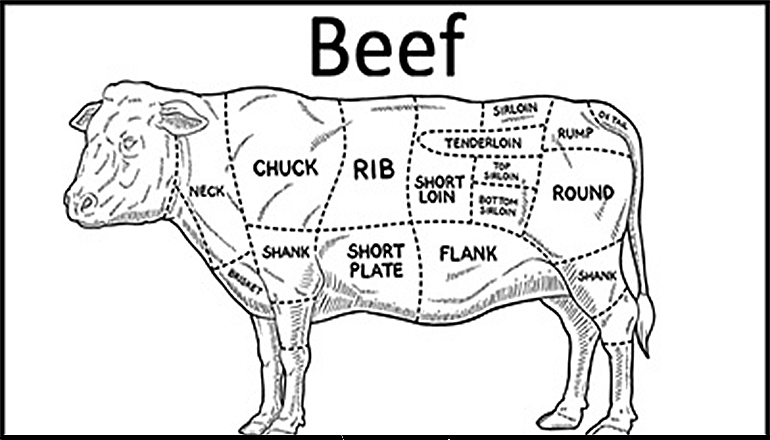One option for consumers buying meat is to purchase directly from the producer. A new University of Missouri Extension publication offers guidelines for buying all or part of the animal from a livestock producer and having the meat processed and packaged.
“People buying an animal for personal processing for the first time have many questions,” said MU Extension agricultural business specialist Jennifer Lutes, who wrote the guide with extension specialists Kyle Whittaker, Eric Meusch, Rachel Hopkins, and Amie Breshears. “We’ve created this guide to help new buyers know what to expect from the farmer, processors, and final product.”
Animals can be processed at custom-exempt, state-inspected, or federally inspected facilities. At custom-exempt facilities, animals are not processed under inspection. The meat can only be used by those who own all or a share of an animal and their households, along with nonpaying guests and employees.
Consumers can pool their resources and split meat from an animal in halves or quarters. Buying a whole, half, or quarter is considered a “bulk quantity” meat purchase.
The guide outlines five steps for buying meat directly from the farm.
Identify the meat you want and how much. Check your freezer’s owner’s manual to determine its capacity. Decide how much meat your family can use over three to six months. Quality declines the longer meat is stored. The processor will help you determine which cuts you want, how thick to cut steaks, and what portion sizes you want for packaging.
Purchase animals from livestock producers. Take the time to find an animal that meets your needs and expectations. Questions to ask the producer:
- How is the animal raised and finished?
- When will the animal be ready for processing?
- What is the animal’s expected finished weight?
- Do you have references you can share?
- How is the animal priced?
- Is a deposit required?
- Do you arrange for processing?
- What processor do you use?
- Do you decide on the final cuts, or will I need to specify the processing details?
- Do you provide transport to the processor?
- Is there an additional fee?
Find a processor that fits your needs. If the farm selling your animal doesn’t arrange the processing or doesn’t have a preferred processor, then use resources such as the Show Me Food website from MU Extension or the Missouri Meat Producer Directory from Missouri Farm Bureau. Call or visit a few businesses to learn about their services, then choose the best fit.
Understand your costs. The producer will set the live animal’s price. You pay the farmer for raising and finishing the animal. Your bill from the processor typically will include processing, slaughter, and disposal fees plus any additional fees. Processors will base their costs on the hanging weight, which equals the animal carcass weight after removing the head, hide, blood, and offal (internal organs).
Consider the timing. Call months in advance to schedule a processing appointment. At the height of the pandemic, wait times for appointments were 12 to 18 months. Coronavirus assistance funds to processors in Missouri increased processing appointments to meet the growing consumer demand for buying meat directly from producers. Today, you can typically expect to wait 6-12 months.
“Five Steps to Buying Meat Direct From the Farm” is available for free download at this link.


